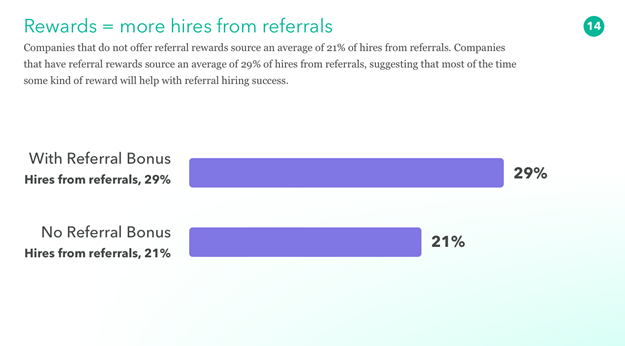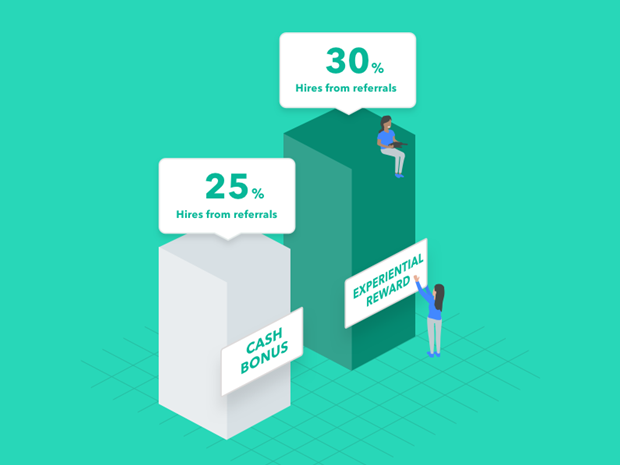Do Employee Referral Bonuses Lead to High-Quality Referrals?

Offering a referral bonus of some kind yields a measurable increase in the percentage of hires coming through referrals, according to the 2017 Referral Programs Benchmark Report, authored by the referral network Drafted.
The report looked at data from 145 companies and found companies that offer referral bonuses make roughly 30 percent more hires through referrals than companies that don’t offer bonuses.

According to the report, common reasons why companies don’t offer referral bonuses include:
- The belief that because referring new candidates is part of an employee’s job, the salary they are being paid acts as a bonus already.
- The belief that employees should only refer people because they want to work with great people, not because there is a bonus to be had.
- The fear that offering a bonus will bring in too many referrals, making it difficult to screen them all.
Several forward-thinking companies are forgoing cash bonuses in favor of “experiential rewards,” such as vacations and nice dinners. These experiential rewards can be powerful incentives: Companies that offer experiential perks in addition to cash bonuses make an even higher percentage of hires through referrals.

What happens when you don’t offer referral bonuses of any kind, whether cash or experiential? Here are a few potential negative outcomes:
- Employees will be less likely to take risks when making referrals, leading to fewer referred candidates overall.
- Employees may see your referral program as a negative experience and not participate.
- Employees will not dig deep into their networks to find great referrals, limiting your pool of referrals to top-of-mind, less diverse candidates.
Does your company have a scalable and sustainable referral strategy? If not, it might be time for a change.
Vinayak Ranade is the founder and CEO at Drafted.

